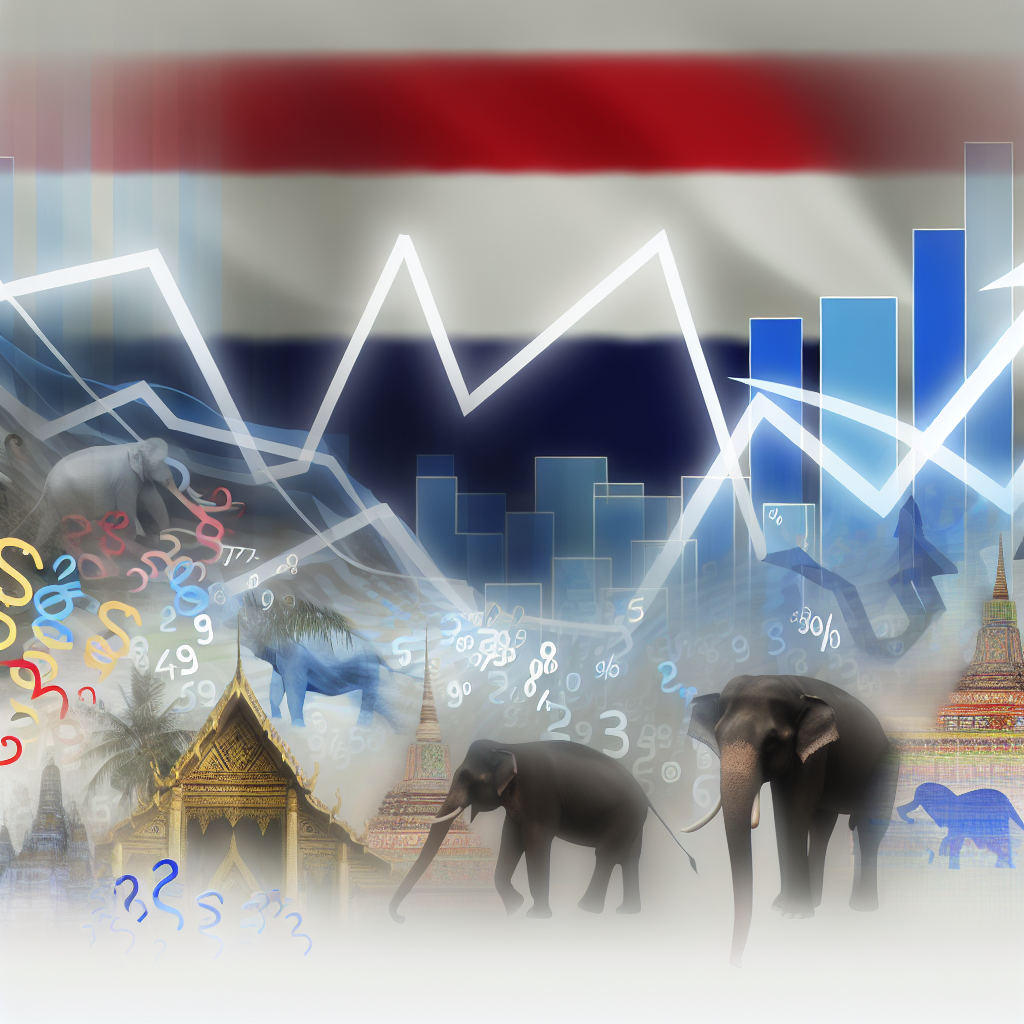Thailand’s SET Index: Tourism Slows Amid Global Uncertainty
Thailand’s Stock Exchange of Thailand (SET) Index has long been influenced by the country’s robust tourism sector, which contributes significantly to its economy. However, recent global uncertainties have cast a shadow over the tourism industry, leading to a noticeable slowdown that is now impacting the SET Index. This article explores the intricate relationship between Thailand’s tourism sector and its stock market, analyzing the causes behind the current slowdown and its implications for investors and the broader economy.
The Importance of Tourism to Thailand’s Economy and SET Index
Tourism is a cornerstone of Thailand’s economy, accounting for approximately 20% of the country’s GDP before the COVID-19 pandemic. The sector supports millions of jobs and drives demand in related industries such as hospitality, retail, transportation, and entertainment. Consequently, many companies listed on the SET Index are directly or indirectly tied to tourism, including hotel chains, airlines, and consumer goods companies.
For example, companies like Minor International (MINT), which operates hotels and restaurants, and Thai Airways International (THAI) have historically been sensitive to fluctuations in tourist arrivals. When tourism thrives, these companies tend to perform well, boosting the overall SET Index. Conversely, any downturn in tourism can lead to reduced revenues and investor confidence, negatively affecting stock prices.
Global Uncertainty and Its Impact on Tourism
Several global factors have contributed to the recent slowdown in Thailand’s tourism sector:
- Geopolitical Tensions: Ongoing conflicts and diplomatic strains in key tourist source countries have reduced outbound travel.
- Economic Slowdowns: Inflationary pressures and economic uncertainty in major markets like China, Europe, and the United States have curtailed discretionary spending on travel.
- COVID-19 Aftershocks: Although Thailand reopened its borders, lingering travel restrictions and health concerns continue to dampen tourist confidence.
- Currency Fluctuations: The Thai baht’s volatility has affected travel costs, influencing tourists’ decisions.
According to the Ministry of Tourism and Sports, international tourist arrivals in Thailand dropped by nearly 15% in the first quarter of 2024 compared to the same period in 2019. This decline has had a ripple effect on the SET Index, particularly in sectors linked to tourism.
Case Study: The Hospitality Sector’s Struggles
The hospitality sector, a major component of the SET Index, has faced significant challenges. Minor International (MINT), one of Thailand’s largest hospitality and lifestyle companies, reported a 10% decline in revenue in Q1 2024 compared to the previous year. The company cited lower occupancy rates and reduced average daily rates as key factors.
Similarly, Central Plaza Hotel Public Company Limited (CENTEL) experienced a dip in stock performance, reflecting investor concerns about the sector’s recovery pace. These companies’ struggles highlight the broader vulnerability of the SET Index to tourism fluctuations.
Investor Sentiment and Market Outlook
Investor sentiment towards the SET Index has become cautious amid these uncertainties. Foreign investors, who play a significant role in the Thai stock market, have reduced their exposure to tourism-related stocks, favoring more stable sectors such as technology and energy.
However, some analysts remain optimistic about a gradual recovery. The Thai government has introduced stimulus measures aimed at revitalizing tourism, including:
- Promotional campaigns targeting new markets such as India and the Middle East.
- Infrastructure investments to improve connectivity and tourist experiences.
- Incentives for sustainable and eco-friendly tourism development.
These initiatives could help stabilize the tourism sector and, by extension, support the SET Index in the medium to long term.
Conclusion: Navigating Uncertainty with Strategic Insight
Thailand’s SET Index remains closely tied to the fortunes of its tourism industry, which is currently facing headwinds due to global uncertainty. The slowdown in international arrivals has impacted key sectors within the index, leading to cautious investor sentiment. However, with targeted government interventions and a potential shift in tourist demographics, there is room for optimism.
Investors should monitor global economic trends, geopolitical developments, and domestic policy responses to better understand the trajectory of Thailand’s tourism sector and its influence on the SET Index. While challenges persist, strategic opportunities exist for those who can navigate this complex landscape with informed insight.





